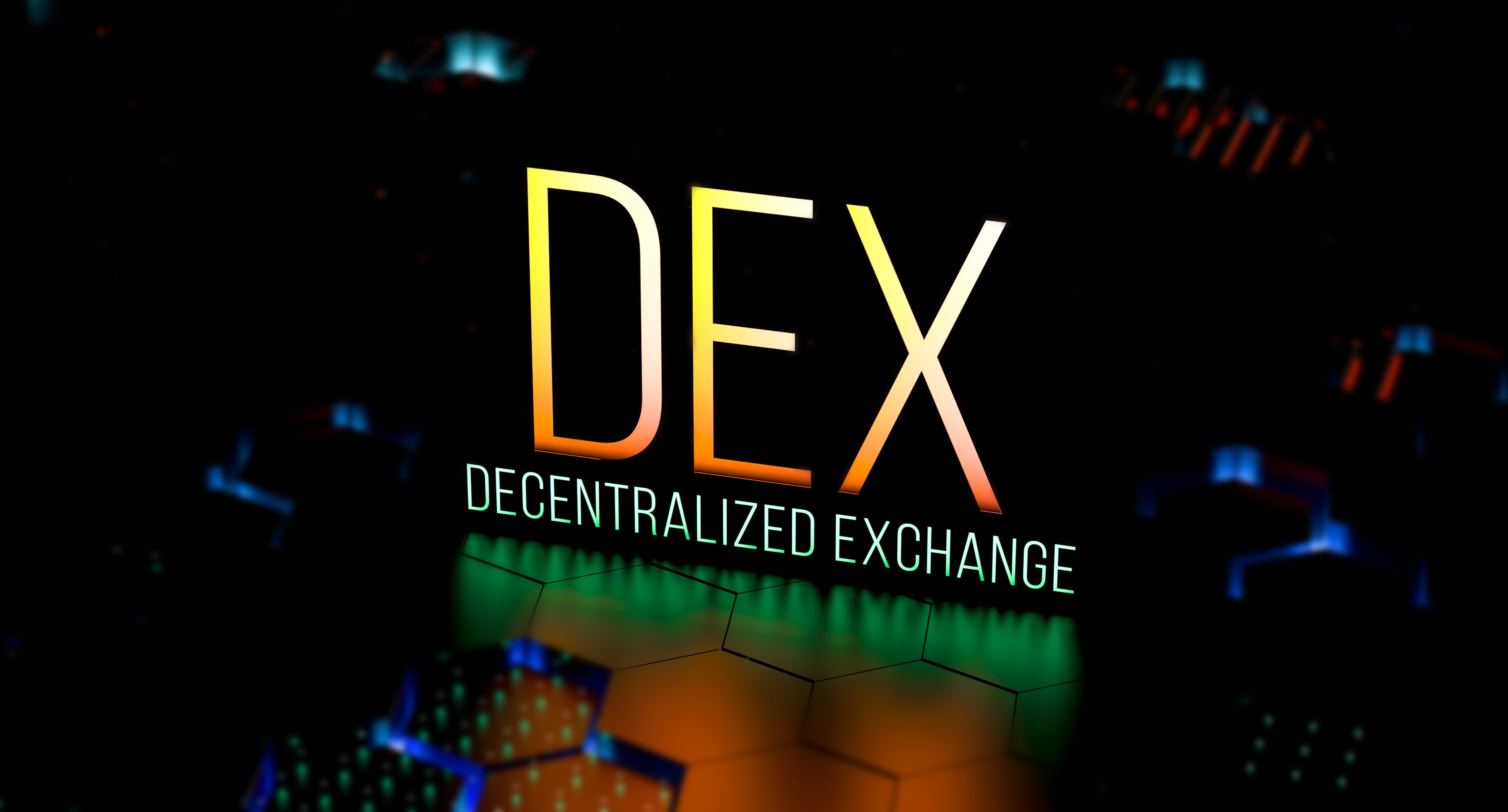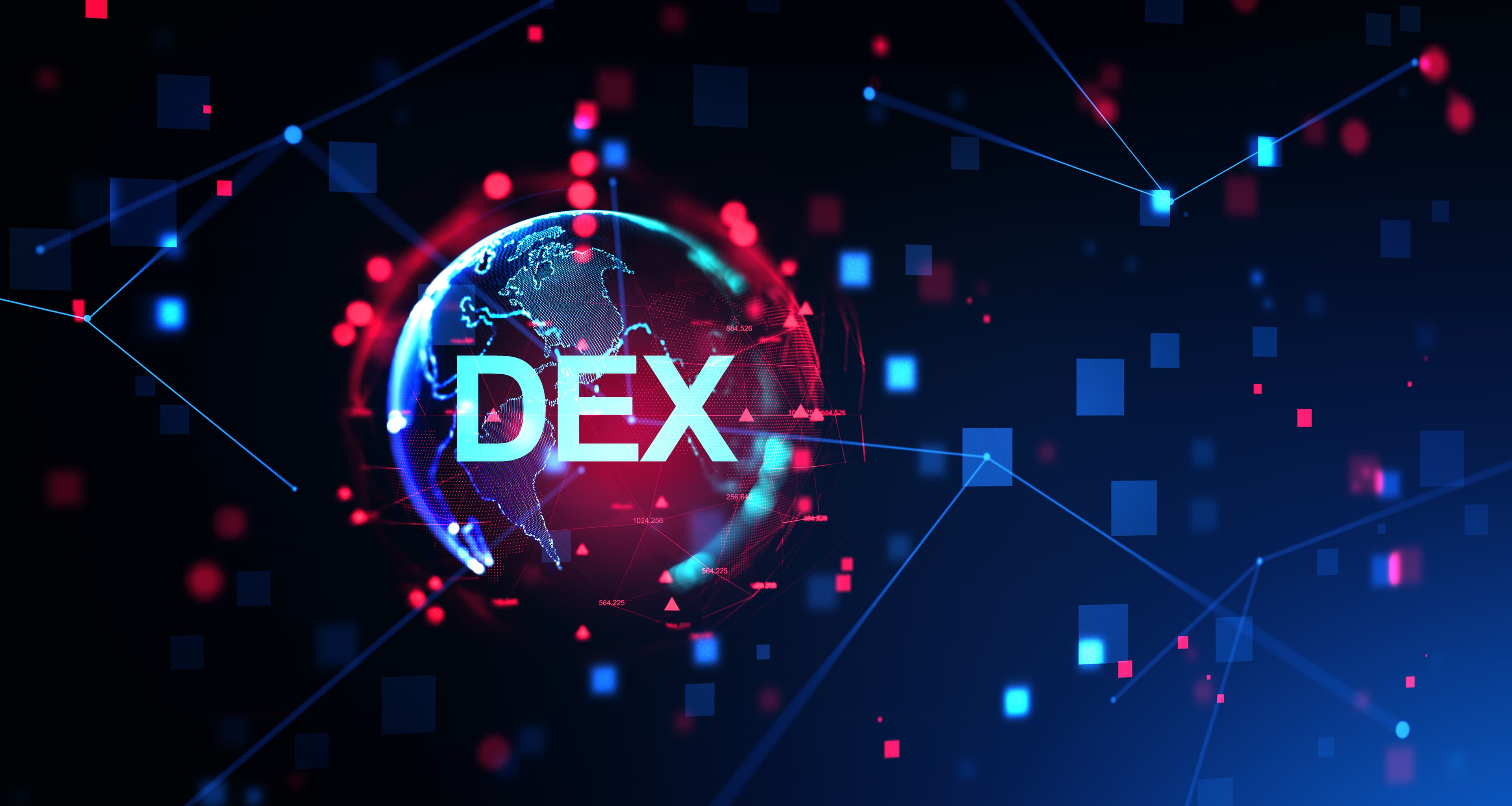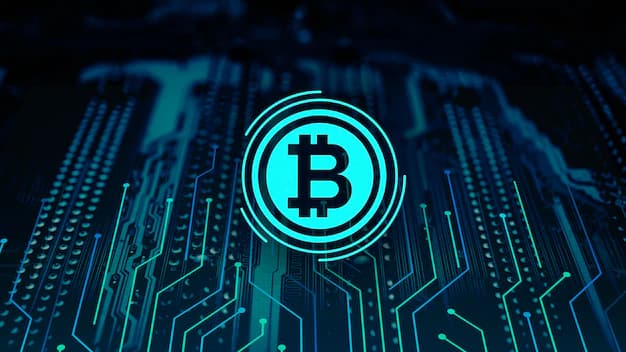

A DEX is based on the concept of “disintermediation,” it refers to omitting mediators and enabling everyday people to transact businesses freely with their counterparts.
A DEX does not guarantee the maintenance of users’ crypto assets. On the other hand, users always precisely control their funds in their digital wallets.
Read on as we take you through understanding and navigating decentralized exchanges (DEX).
What is DEX?
Decentralized exchanges (DEXs) are apps built on Blockchain that manage extensive crypto stock trades amid numerous users.
Instead of using the normal route of serving as a financial mediator between both parties, they accomplish this using algorithmic processes. Unlike CEX exchanges like Binance, DEX algorithms are illustrations of a smart contract, giving its end user complete anonymity.
They are bit sizes of programming built on the framework of blockchain channels like Ethereum, which generate specific flows causing a variety of responses.
Explaining the Concept of DEX

A decentralized exchange is a virtual monetary marketplace where users purchase cryptocurrencies from one another via electronic medium without a facilitator.
DEX is different from the conventional centralized exchange whereby a third party (like the financial institutions, governmental agencies, and trading platforms, amongst others) typically monitors the safety and flow of investments within both business partners and employs ownership of user finances.
Decentralization is a basic tenet of blockchain technology and the cryptocurrency industry. It redirects influence away from centralized authority and gives it to users.
Decentralization also reshapes the extent to which traditional bank institutions function.
According to a report by the international accounting firm KPMG, by the end of 2021, the most prominent cryptocurrency DEXs would have started to compete with some of the biggest centralized exchanges (CEXs) regarding trading volumes.
DEXs are the top decentralization groups, while exchanges are the most prominent cryptocurrency companies.
DEXs often replace the traditional exchange transaction books, pairing buyers and sellers due to transaction pricing and capacity, with “liquidity pools.”
These are PotCoins containing digital currencies ready to fulfill potential purchase or sale bids that may occur beneath the exchange’s structure.
Traders depositing assets in the share do so solely to profit from financial transaction costs levied against pool users.
DEXs use intelligent contracts to carry out business trades by assigning every aspect of transactions to self-governing codes. However, processing orders can take numerous shapes and vary in decentralization level depending on the nature.
Decentralized exchanges, like virtual currencies, were developed as an alternative to outdated, inefficient financial systems that exposed their users to the threats of centralized systems. The absence of accountability, glitches in technology, and inadequate safeguards are frequently among these hazards.
Various Types of Decentralized Exchange
Crypto trading recommends various types of DEXs classified into three, namely, AMMs(Automated Market Makers), Order books, and Dex Aggregators.
- AMMs (Automated Market Makers)
Due to tariffs algorithms that freely value any asset linking instantaneously (for example, Bitcoin-US dollar), an automated market maker (AMM) updates order books.
AMMs distribute this procedure and enable clients to construct a marketplace on a blockchain instead of conventional trade-making, in which corporations supply exact pricing and a narrow margin on an order book.
Since the AMM collaborates with a blockchain to “invent” a market, no intermediary is required to complete a transaction.
Participants transact with smart contracts and offer liquidity rather than executing it by interacting with a different party, a trading system, or an exchange broker.
There is no different variety of orders on an AMM because pricing is decided using algorithms, producing a form of market order. AMMs typically have a lower learning curve than certain DEXs and interface with well-known digital wallets.
2. Order Books DEXs
Order book DEXs implement booking systems to keep track of all open orders, as noted by their term. These orders specify the rate at which an analyst is eager to buy or purchase an investment.
Order book DEXs come in two different forms: On-Chain and Off-Chain.
- Through on-chain order books, users can place accessible transactions on the Blockchain and preserve their assets in digital wallets.
The On-chain business transactions, consisting of order modification and cessation, are handled by several decentralized exchanges.
Through on-chain order books, users can place accessible transactions on the Blockchain and preserve their assets in digital wallets.
From a theoretical standpoint, it is a highly decentralized and open procedure available because it does not rely on a third party to manage requests at any point in time.
The implementation of this strategy is challenging too.
DEXs undergo an intensive procedure of requesting every server on the distributed system to donate some amount to miners and archive the transaction by putting all steps of the transaction onto the Blockchain.
- Off-chain orders are those wholly issued externally, like a centralized body that controls the books of orders, in contrast to being recorded on the blockchain protocol.
Although they are still considerably more centralized than their on-chain equivalents, DEXs with off-chain order books are nonetheless reasonably decentralized.
Customers’ savings remains safe from the DEX’s unsupervised model even if such a party had a link to the order books to front-run or falsify orders.
A DEX can offer a structure for clients to maintain off-chain order books via intelligent contracts, albeit a certain level of decentralization is forfeited. Then servers can pass bids across brokers while gaining exposure to a bigger liquidity pool.
The deal can be carried out on-chain immediately when the parties have been paired.
Instead of depending on slower on-chain order books, such designs benefit users.
Off-chain order books can deliver faster speeds due to fewer obstacles and shorter validation intervals brought on by rudimentary blockchain variations.
3. DEX Aggregators
DEXs Aggregators are used to gather different trade pools and boost trading finances, especially for individuals who want to diversify their portfolio or deal in lesser currencies.
In their ability to gather facts and figures from several sources while offering users more possibilities, these aggregators function similarly to search engines.
DEX aggregators use several kinds of tactics and procedures to fix liquidity problems. To ensure minimal swapping costs, maximize token gadgets, and lower the danger of slopping, they often draw liquidity from a small number of DEXs.
Perks of Employing a DEX

DEXs become more alluring when you blend them. Below are numerous perks of employing DEXs.
- Easily Accessible: It is easily accessible to developers and crypto traders looking to establish decentralized exchange applications. And a majority of DEXs use easily accessible software, and considering all of their dealings are recorded on the corresponding blockchains, everyone can see them. Anybody can confirm the procedures and guidelines the DEX and its smart contracts adhere to because the program is open-source.
2. Improvements in Safety and Transparency: Decentralized exchanges provide more safety and transparency. The threat of looting or malware is decreased because users have complete authority over their possessions. They don’t have to hand over their data or put money in centralized wallets. Decentralized exchanges safeguard users’ cash by eliminating a single indicator of bankruptcy.
3. Omitting Middlemen and The opponent pitfalls: Decentralized exchanges enable trading between peers directly, omitting the need for mediators like guardians, intermediaries, or clearing stations. Omitting intermediaries lowers costs and hassles. “Instantaneous transaction”, a computerized process made possible by smart contracts, increases the trustworthiness and transparency of trades while lowering competitor hazards.
4. Universal Integration and Inclusion: Decentralized exchanges function on blockchain communities, in contrast to centralized exchanges, which impose access restrictions and demand lengthy authentication. Inclusion implies that everyone with access to the web can engage in trade.
5. Trading efficacy and stability:
Trading efficacy and stability are important for exchanges. Owing to disintegration, conventional trading platforms seek to keep liquidity. Decentralized exchanges use blockchain technology to combine liquidity from various outlets, expanding the market. By increasing trading efficacy, this pooled liquidity also helps traders’ operations.
6. Visibility and Clarity: Decentralized exchanges use visible blockchain technology. The Blockchain creates an unchanging and verifiable ledger by recording every deal and smart contract. This openness fosters confidence among users, enabling anybody to check transactions and guarantee a fair trading system.
7. The ability to withstand restriction and censorship:
Decentralized exchanges are made to be resistant to regulators and censoring. They are not subject to centralized or governmental custody because they function on decentralized channels. Decentralized exchanges pose the chance to revolutionize the financial sector and provide an extra universal, safe, and effective globe as the usage of blockchain technology rises.
Is DEX Usage Convenient For You?
With the descriptions done so far, you should have a clearer idea of what a DEX is alongside its operations. DEXs play a significant role in DeFi and provide exceptional services that are only sometimes available on centralized or TradFi exchanges.
If you’re drawn to cryptocurrency but are still deciding whether to plunge into DEXs, creating a wallet is the initial course of action. Using a wallet, you can purchase, trade, exchange, and deposit bitcoins.
With Blockchain, you have sole custody of your cryptocurrency without switching services or apps because you can have custodial and non-custodial wallets in exact locations.
Purchasing and Trading Crypto Assets Through A DEX Platform
Establishing a DEX Wallet
The fundamental phase is creating a wallet to reserve virtual items intended for purchase.
An Ethereum wallet that accepts ERC-20 tokens is required because many DEXs run on the Ethereum blockchain. MyEtherWallet and MetaMask are two instances of Ethereum wallets.
Financing Your Account
cryptocurrency must be deposited into your account to make transactions on a DEX. Transfer your funds to the DEX’s smart contract id from your cryptocurrency wallet to achieve this.
Comply with the DEX’s guidelines, and ascertain the deposit location carefully.
Applying for a Buy/Sell Order
When the necessary reserves are accessible, decide what quantity of crypto investment you wish to trade. The expense will then be chosen on an AMM DEX computation centered on the state of the trading demand.
Specify the desired quantity of currencies, then click “Confirm Trade” to complete the transaction.
FAQs on Decentralized Exchanges
How do decentralized exchanges protect user assets and assure security?
Decentralized exchanges guarantee security by allowing users to keep ownership of their private keys and assets, obviating the need for custodial wallets and lowering the likelihood of theft or hacking.
The lack of a single point of failure improves security defenses and protects user cash from security breaches.
Do decentralized exchanges offer greater levels of privacy than centralized ones?
Yes, decentralized exchanges prioritize privacy by doing away with the need for laborious personal identification verification processes.
Decentralized exchanges enable people to make trades right from their wallets while protecting their private data, as opposed to centralized exchanges that frequently require disclosing confidential private details.
Why are decentralized exchanges advantageous in omitting intermediaries?
By employing smart contracts and blockchain tech to support seamless interpersonal trading, decentralized exchanges mitigate mediators like trustees, intermediaries, or clearing centers.
The omission of intermediaries saves related costs and lags, accelerates the procedure, decreases competitor hazards, and improves transaction dependability and visibility.
Can anybody, irrespective of their area, use decentralized exchanges?
By functioning on blockchain networks, decentralized exchanges enhance universal openness and diversity by enabling everyone with internet access to engage in trade.
Decentralized exchanges provide users globally with related chances irrespective of location or economic standing.
How do decentralized exchanges maintain price stability and accuracy?
Liquidity is critical to the effectiveness of any transaction. Decentralized exchanges tackle the issue of dispersed liquidity by utilizing blockchain networks to aggregate liquidity from several sources.
Because of this pooled liquidity, order books are more profound, and margins are more limited, improving trading efficiency and facilitating greater accuracy for investors.
Is it possible to examine and analyze the decentralized exchange trades?
Yes, using the visibility built into blockchain technology, dealings and intelligent contracts made on decentralized exchanges are recorded there.
This immutable and verified ledger promotes trust among participants by allowing users to examine transactions and validate the trading strategy.
In what way do decentralized exchanges defy censors and legal oversight?
By functioning on decentralized networks, decentralized exchanges are developed to defy censoring and government regulation. Because any particular company or domination doesn’t regulate them, they have potential in areas with severe capital limitations or limited autonomy.
Customers can sell assets with decentralized exchanges before worrying about having personal earnings confiscated or adopted.
Are decentralized exchanges compatible with newbies to Bitcoin trading?
Decentralized exchanges may be compatible with newbies. Nonetheless, they might possess a longer learning process than centralized exchanges.
What distinguishes a controlled exchange (CEX) from a decentralized exchange (DEX)?
Individual users can directly link and conduct asset transactions via a decentralized exchange.
Alternatively, a centralized exchange becomes an intermediary and manages the transaction’s financial assets or money. The main distinction is that a CEX functions as a centralized authority.
Read More




